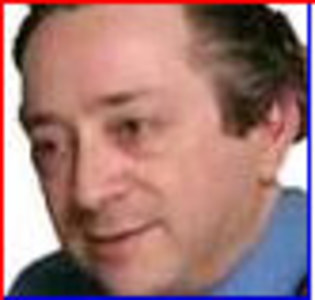MONTREAL - Robust support for Canadian involvement in any war, including the one in Afghanistan, is generally a non-starter in Quebec. And so there is never a shortage of eager anti-war demonstrators here. Thus, I wasn't surprised when, last Saturday, the usual coalition of defenders of failed cultures were organizing a "peace" march in downtown Montreal.
This rally's real purpose wasn't peace, though; it was to call for Canada to withdraw its troops from Afghanistan and let the Taliban thugs take control.
Twenty-four hours before the march, a young ex-soldier asked me to support a counter-demonstration, which I did. The young patriot spent the night calling recruits and making signs -- "Support Our Troops" and "Stand With the Free." The next day, fierce rain leveled the playing field, attracting low turnout for both sides. But a dozen of us held up our signs and proudly waved Canadian and Quebec flags, earning a satisfying number of supportive car honkings.
We also attracted a few media types. And here is where things got interesting.
A radio reporter from the French language Radio-Canada asked us if our group was "against peace." In French, I explained we were demonstrating for our troops and for freedom, adding that our Prime Minister "had given this nation a brave and bold new vision and we should follow it." There was no talk of the Middle East or Iraq. Instead, we discussed Canada's role on the international scene.
Suddenly, a propos of nothing I had said, she asked me if I was a Jew. "I'm a Canadian," I said. "And a democrat. I don't define myself by religion."
I then asked her what reason she had for this question. As a journalist and activist, I am often asked about my religion -- but only by francophone reporters.
She replied it was for "context."
"What context?" I asked.
She replied that the "peace" marchers included representation and sponsorship from groups such as the Canadian Islamic Congress. It seemed to me that she could not comprehend that individuals could come together in support of an idea instead of a tribe. If there was a Muslim Committee on one side, she apparently reasoned, there had to be a Jewish committee on the other.
I explained we were there as "free citizens." But she persisted. It was as if she could not understand that people can act out of individual initiative, without being frogmarched to the barricades by an acronymed ethno-religious group.
As it happened, we discovered from a quick head count, three out of the 12 of us were Jewish. "Does that make it a Jewish conspiracy?" I asked her. She quickly terminated the interview, accusing me of prejudging her.
Before she left, I reminded her of what a francophone senator once told me: that the real "two solitudes" in Quebec were not the Anglophones and the francophones, but those francophones who were the heirs of Papineau and Lafontaine, Laurier and Trudeau, as opposed to those who were the small-minded heirs of Maurice Duplessis' La Grande Noirceur, Lionel Groulx and Adrien Arcand. I asked her to reflect on whose heir she was.
The weather was vile that day, but the sting of the reporter's attitude hurt more than the wind and rain. I thought of the last "peace" march that Montreal had hosted, on August 6. On that occasion, Quebec politicians and labour leaders marched in solidarity with thousands of pro-Hezbollah sympathizers. It was a march that specifically called for "peace in Lebanon and Palestine" yet pointedly excluded "peace for Israel." (Of course, that didn't stop Bloc leader Gilles Duceppe; or the PQ's Andre Boisclair; or labour leader Henri Masse; or Denis Coderre, Michael Ignatieff's Quebec lieutenant, from marching along. So perhaps we shouldn't have been surprised when Mr. Ignatieff started spouting off two months later about Israeli "war crimes.")
Nobody in the mainstream Quebec media, including that CBC reporter,
denounced any of this. Was I disappointed? Yes. Surprised? No. It's all part of the "distinct society" we call Quebec.
- Beryl Wajsman is the president of the Institute for Public Affairs of Montreal. He is also the editor of Barricades Magazine, and hosts a nightly talk show on Corus Radio's NEW940 Montreal. He can be reached at info@iapm.ca
Religious profiling, Quebec-style
La nation québécoise vue par les fédéralistes québécois

Beryl Wajsman14 articles
Beryl Wajsman is president of the Institute for Public Affairs of Montreal www.iapm.ca, publisher of BARRICADES Magazine www.barricades.ca, and host of Corus Radio’s “The Last Angry Man” on the New 940Montreal. He can be reached at: info@...
Cliquer ici pour plus d'information
Beryl Wajsman is president of the Institute for Public Affairs of Montreal www.iapm.ca, publisher of BARRICADES Magazine www.barricades.ca, and host of Corus Radio’s “The Last Angry Man” on the New 940Montreal. He can be reached at: info@iapm.ca.

















Laissez un commentaire Votre adresse courriel ne sera pas publiée.
Veuillez vous connecter afin de laisser un commentaire.
Aucun commentaire trouvé